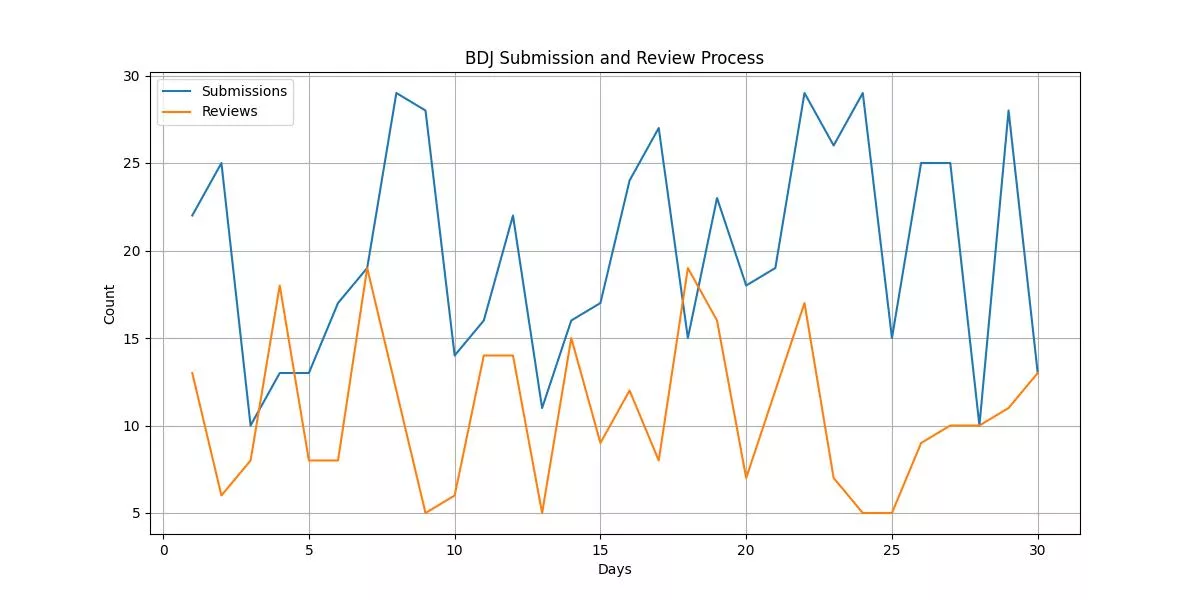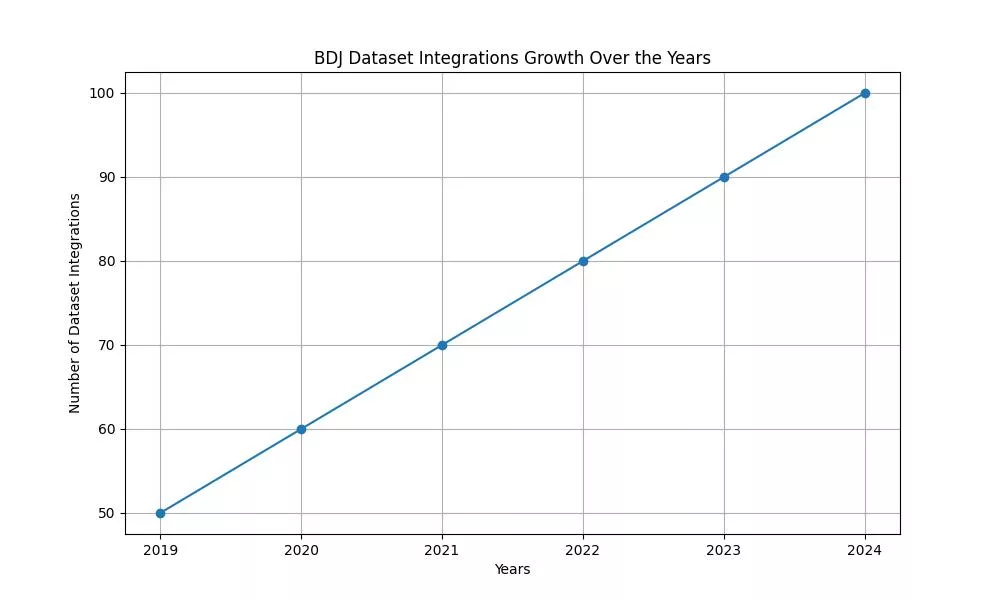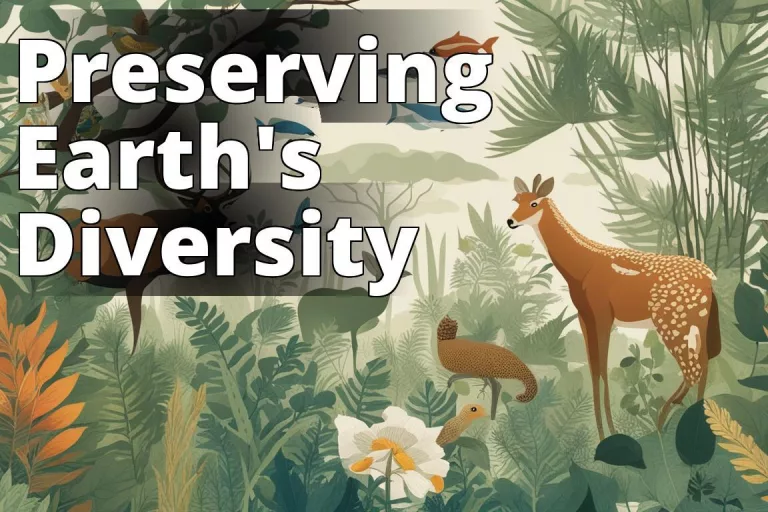In an era where the sheer scale of data can either unlock the secrets of biodiversity or bury them under digital rubble, the Biodiversity Data Journal (BDJ) emerges not just as a beacon of hope but as a revolutionary platform in the realm of biodiversity informatics. The journal is the epitome of how open access and peer-reviewed mechanisms can synergize to propel the dissemination and sharing of biodiversity data, making it an invaluable resource for researchers, conservationists, and policy-makers alike. This isn’t just about publishing data; it’s about weaving a global narrative of biodiversity conservation through the power of shared knowledge.
Visit the Biodiversity Data Journal: https://bdj.pensoft.net/
Biodiversity Data Journal is a community peer-reviewed, open access, comprehensive online platform, designed to accelerate publishing, dissemination and sharing of biodiversity-related data of any kind.
Imagine a world where every research finding, every species discovery, and every ecological dataset doesn’t just sit on a shelf collecting dust but is instead immediately accessible to anyone, anywhere in the world. That’s the world the Biodiversity Data Journal is creating. By embracing the open access model, BDJ ensures that all its content is freely available without any subscription barriers, thus democratizing the flow of biodiversity information.
The journal’s peer-reviewed process is not just rigorous but also community-driven, ensuring that the data shared is both credible and relevant. This is crucial in a field as dynamic and as critical as biodiversity conservation, where the quality of data can significantly influence policy and conservation strategies.
Insider Tip: Always ensure your data submissions to BDJ are accompanied by comprehensive metadata. This not only enhances the discoverability of your research but also ensures its long-term usability.

But BDJ is more than just a repository. It’s a platform that fosters collaboration by integrating various types of biodiversity data – from species checklists and distribution maps to genomic data and environmental monitoring records. This holistic approach not only enriches the biodiversity data ecosystem but also makes it easier for researchers to draw insights, identify trends, and propose solutions to pressing environmental issues.
Biodiversity Data Journal is a community peer-reviewed, open access, comprehensive online platform for accelerating research in the field of biodiversity informatics.
The technical backbone of BDJ is designed to handle the complexities of biodiversity data management and conservation. Its infrastructure supports the ingestion, curation, and dissemination of large datasets, making it an invaluable tool for environmental data analytics. The platform’s architecture is built with the future in mind, ready to adapt to the evolving needs of biodiversity research and conservation.
One of the journal’s standout features is its commitment to data interoperability. By adhering to international data standards and fostering partnerships with global biodiversity databases, BDJ ensures that the data it houses can be easily integrated with other datasets, thus amplifying its utility and impact.
Insider Tip: Leverage BDJs data visualization tools to make your research more accessible and engaging. Visual storytelling can significantly enhance the impact of your data.

But what truly sets BDJ apart is its human touch. Behind every dataset, every review, and every publication is a team of dedicated professionals and a global community of researchers and conservationists. This human-centric approach not only enriches the technical robustness of the platform but also ensures that it remains attuned to the real-world needs and challenges of biodiversity conservation.
5 reasons to post my paper to the Biodiversity Data Journal
- Visibility and accessibility: The Biodiversity Data Journal is an open-access journal, meaning that your paper will be freely available to anyone with an internet connection. This can increase the visibility and impact of your work.
- Rigorous peer-review: The Biodiversity Data Journal has a rigorous peer-review process, ensuring that the research published in the journal is of high quality.
- Data publishing: The Biodiversity Data Journal allows for the publication of data papers, which can help to increase the availability and reusability of biodiversity data.
- Interdisciplinary audience: The Biodiversity Data Journal has a broad scope, covering topics in biodiversity research, ecology, conservation, and environmental science. This can help to reach a wide and interdisciplinary audience.
- Support for biodiversity research: By publishing in the Biodiversity Data Journal, you are supporting the journal’s mission to promote and disseminate biodiversity research.
For those of us passionate about leveraging technology for environmental conservation, BDJ represents a pivotal shift in how biodiversity data is shared, used, and preserved. It’s a testament to the power of community, collaboration, and open access in driving meaningful advances in biodiversity research and conservation.
Internal links to explore for deeper insights:
- How can technology help conserve biodiversity?
- Harnessing environmental big data for effective natural resource management
- Environmental big data and citizen science
- Environmental data and indigenous data sovereignty
- Democratizing environmental data access
- Big data technologies and tools for environmental insights
- Harnessing the power of cloud-based earth observation data analytics for natural resource management
- Environmental DNA monitoring
- eDNA processing: How environmental DNA and big data are reshaping ecology
- Geographic Information Systems for environmental monitoring
Conclusion
The Biodiversity Data Journal is not just a platform; it’s a movement. A movement towards a more open, collaborative, and efficient way of managing and sharing biodiversity data. By breaking down barriers to data access and fostering a global community of researchers and conservationists, BDJ is paving the way for a future where biodiversity information is not only preserved but also actively used to inform conservation strategies and policies.
In this journey, it’s crucial for each one of us to contribute, whether by submitting our research, participating in peer reviews, or simply advocating for open access to biodiversity data. Together, we can ensure that the invaluable treasure trove of biodiversity data is not just protected but also harnessed to its full potential for the betterment of our planet.
Next Steps
Round Table Environmental Informatics (RTEI) is a consulting firm that helps our clients to leverage digital technologies for environmental analytics. We offer free consultations to discuss how we at RTEI can help you.


